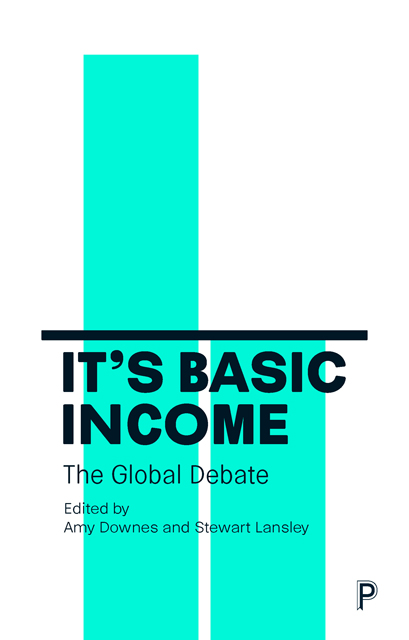26 part I - The Indian experience: The debt trap and unconditional basic income
Published online by Cambridge University Press: 11 April 2023
Summary
‘Basic income has a strong positive effect on households caught in perennial debt. It is not that basic income helps the households to pay off their debt altogether. The effect is incremental. Being paid monthly creates a sense of income security for basic day-to-day needs. This psychological effect gradually enables people to make strategic choices about their employment and sources of borrowing, that eventually have far-reaching effects.’
The MP-UBI Pilot Study, carried out between 2011 and 2013, funded by UNICEF and coordinated by the Self-Employed Women’s Association (SEWA) – a national federation of women workers’ trade unions in the informal sector with a membership of nearly two million – comprised two parallel pilots. The first, larger pilot, was conducted in eight general caste villages. The second in a Bhil tribal village. In these nine villages, all individuals were paid a modest unconditional basic income each month, with the payment for children under 18 paid to the mother or a designated guardian. ‘Control’ villages with similar socio-economic characteristics were selected where basic income was not paid.
In the first pilot, during the first 12 months Rs. 200 (roughly £2.40) was paid to every adult and half of that amount to children under 18. For the next five months, the amount was increased to Rs. 300 (roughly £3.60). In the tribal pilot, for a period of 12 months, Rs. 300 was paid to each adult and half of that amount to children. In both the pilots together, about 6,000 individuals from about 1,100 households received a monthly basic income.
A baseline survey census, an interim and a final evaluation survey were conducted to evaluate the situation of the recipients, before, during and after the basic income transfers. These surveys were also conducted in the ‘control’ villages. In total, the surveys covered over 15,000 individuals. In addition, 100 in-depth case studies were carried out during the experiment as were interviews with key respondents. The pilots had five main features:
1. The basic income transfers were to individuals.
2. The transfers were universal – everyone in the selected village received the basic income.
3. The transfers were unconditional.
- Type
- Chapter
- Information
- It's Basic IncomeThe Global Debate, pp. 136 - 140Publisher: Bristol University PressPrint publication year: 2018



